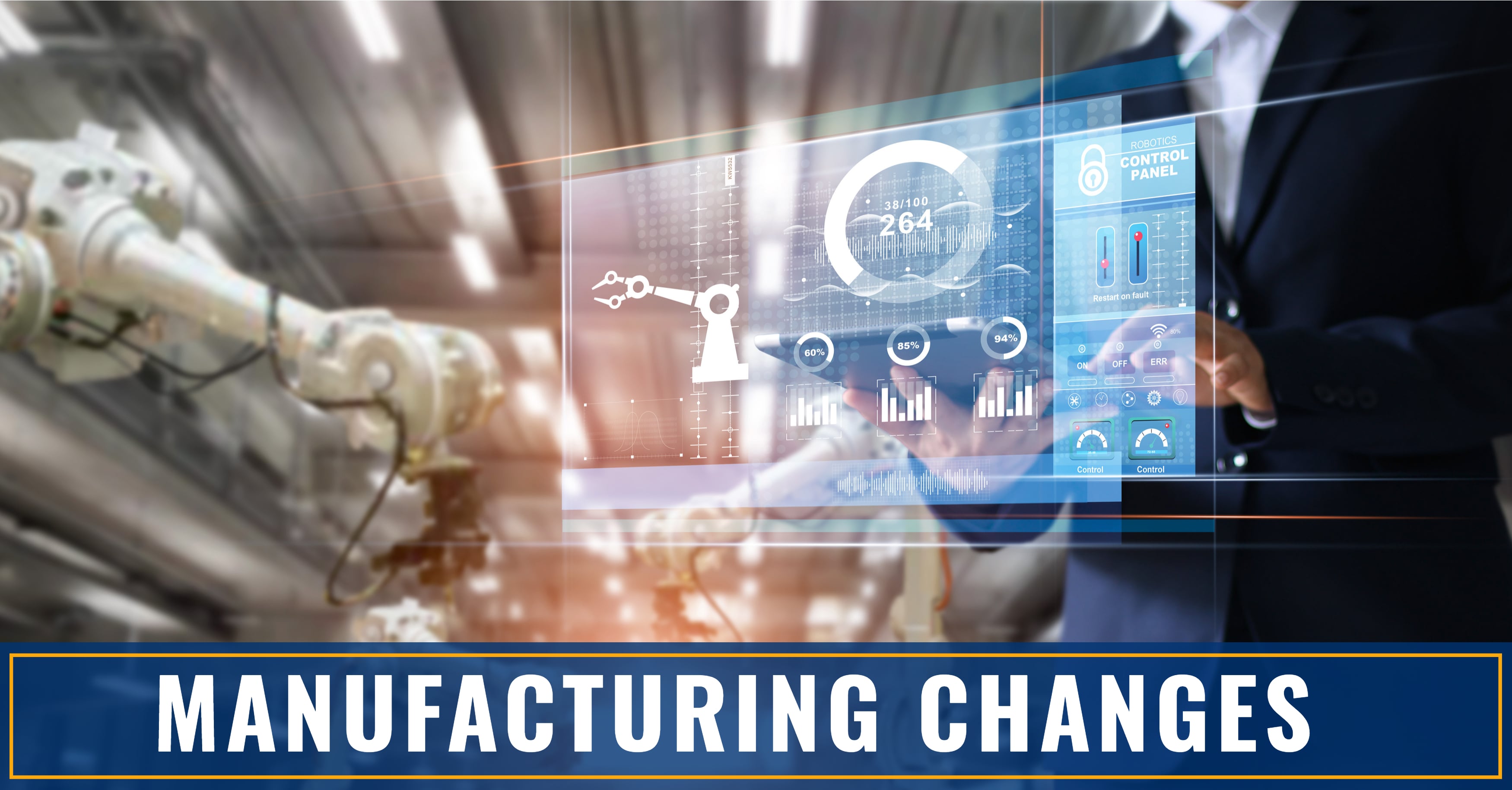Don’t Fall Behind Manufacturing Trends
In the competitive world of manufacturing, it’s all about survival of the fittest—and today’s fittest are those who can adapt to change. A lot of shifts are taking place in manufacturing industries. The older generation of manufacturers is leaving the shop floor, technology is moving at a fast pace and the global marketplace is becoming increasingly turbulent. All this disruption is putting stress on businesses.
But disruption doesn’t have to be a bad thing. Manufacturers who seize new opportunities and weather industry changes will find themselves improving operations and beating the competition. Below, we go over some of the practices you can implement to keep up with manufacturing trends.
Technology Trends
Enterprise technology is moving at a rapid pace, particularly for manufacturers. Advancements in AI, IoT, robotics and other solutions are being made every day. These tools are transforming shop floors and creating streamlined manufacturing processes and state-of-the-art factories.
But instead of seeing opportunities, many manufacturers are getting confused. 35% of respondents in an Epicor survey regarded rapid changes as a reason why they couldn’t keep up with new technology. People outside of IT roles in particular struggle to understand the latest developments.
Manufacturers are too overwhelmed by new technology to take action, but there are ways to get a head start on digital transformation. One way is to actually focus less on high tech. Investing in modern solutions requires a business-first rather than a technology-first approach. That means you should explore your current shortcomings and excess costs. From there, you can figure out where you need to make improvements to beat out the competition.
Once you determine areas you want to change, start exploring which technology can help you reach goals. Seek out professional groups, consultants and trade journals that can point you to the right resources to help you determine which software and equipment is the best fit for your business.
When you start implementing your solution, make sure to keep employees in the loop. Few businesses acknowledge the need for change management in software projects. When users aren’t fully informed and trained, they aren’t likely to adopt new technology. Provide updates, on-site training and resources to encourage widespread user adoption.
Global Turbulence
This year, economists have been predicting a recession or at least a downturn on the horizon. Manufacturers are concerned about the potential impact of trade relations and Brexit. Concerns over foreign exchange turbulence, economic slumps and other issues often deter businesses from pursuing growth. However, there are ways to not only stay afloat but capitalize on opportunities during a tough economy.
Enterprise resource planning (ERP) software can serve as your most valuable asset in periods of global manufacturing turbulence. ERP gives businesses granular control. In a single solution, you can manage operations from top to bottom. That allows you to identify any waste and excess costs as well as opportunities for new streams of revenue. It also helps you maintain tight control over your budget.
Epicor ERP is particularly effective for global manufacturers. Epicor includes country-specific functionality (CSF) and multi-currency management to help you make the best decisions to maintain compliance and conduct transactions. Furthermore, authorized users have visibility across every site, so you can detect issues and develop strategies for any part of your enterprise.
Skills Shortage
Millennials rank manufacturing as their least preferred industry to pursue a career in. This is an alarming fact considering that baby boomers are retiring in droves, leaving a huge swathe of manufacturing positions empty. To recruit new talent into the industry, manufacturers will need to take a different direction, not only in their hiring practices but also in their work environment.
Modern technology could be just what you need to create a modern workplace. ERP, CRM and other applications automate processes and include cutting-edge features to attract tech-savvy millennials. These solutions also support mobile use and collaboration, allowing for greater flexibility and teamwork, which are highly valued by younger generations.
Your recruiting tactics should emphasize how your technology and workplace reflect the values of the modern workforce. Dispel myths of manufacturing being outdated or unsafe by explaining how process automation and sophisticated solutions allow employees to delegate time to decision making and reduce safety hazards. Make sure they understand opportunities for advancement, so they see that a manufacturing position isn’t a dead-end job.
Wrap Up
It’s not always easy to welcome disruption, but manufacturers must embrace change to stay ahead. At Datix, we don’t believe that any business can create a factory of the future on their own. Our certified consultants have extensive experience in manufacturing and distribution environments. We’re an Epicor Gold Partner committed to delivering ERP solutions that align with your unique business goals. With ERP, CRM, BI, eCommerce, integrations, cloud hosting and disaster recovery under one roof, Datix has everything you need to transform your manufacturing enterprise.
Don’t fall behind manufacturing trends. Learn more about our software services and solutions by contacting an expert at Datix today!
{{cta(‘770c1544-d87d-4acb-9fc4-7a25e1385094′,’justifycenter’)}}


